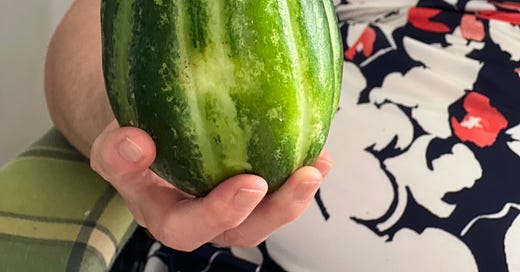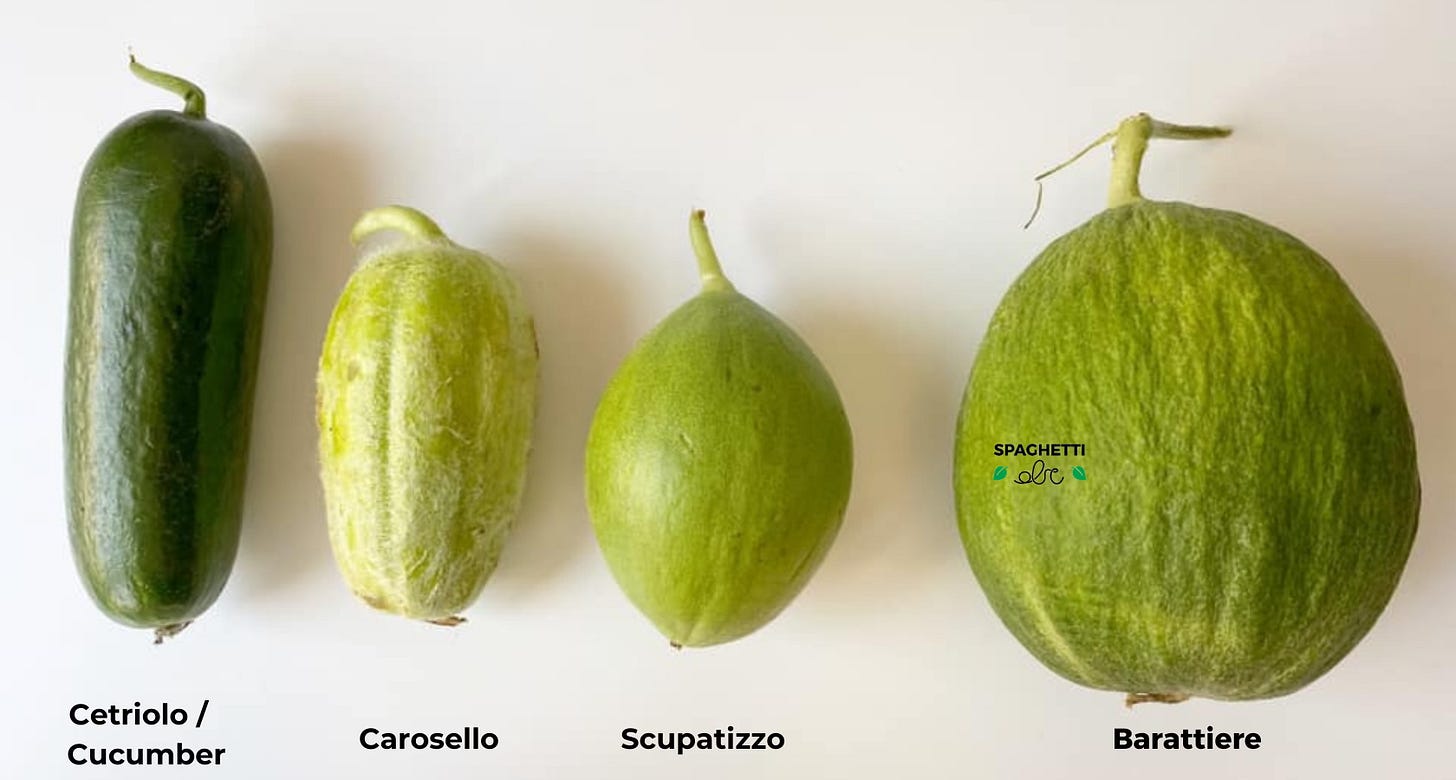If there’s one thing that must never be missing from my August grocery list – and, to be honest, also in June, July, and September – it’s "meloncella" (as it’s called in Salento, the province of Lecce).
Or "barattiere", "scopatizzo", or "carosello" (as they are known in the province of Bari).
Although the name "meloncella" immediately tells us one thing: we’re talking about melons, specifically green and unripe ones, and not cucumbers, as some mistakenly think.
In Puglia, during the summer, there’s no one who can resist the charm of this gift from the earth, halfway between a vegetable and a fruit.
(Salento. Rita and her meloncella)
There’s no lunch or dinner that doesn’t begin, continue, and end with crunching on them. We’re so passionate about unripe melons that we even take them to the beach, already cut into wedges and neatly arranged in a refrigerator containers. The pros of beach picnicking will keep the container on top of two blue ice packs in a cooler bag. Because they’re tastier, more refreshing, and above all, crunchier when eaten cold.
I want to make it clear that we’re not talking about cucumbers because unripe melons belong to a different species: while the former belong to the species "Cucumis sativus", unripe melons are actually "Cucumis melo". The former are more bitter and can sometimes be indigestible; the latter are sweet and aromatic. For me, they’re like cherries – one slice leads to another.
At local markets in Puglia, there are various types available.
The most common ones are:
- "Barattiere", spherical in shape and light green in color, they can grow quite large.
- "Carosello", short and cylindrical in shape, available in smooth or hairy varieties.
- "Meloncella", cylindrical and elongated, with ribbed skin, bright green in color with light green stripes.
- "Scopatizzo", the smallest of the unripe melons, elliptical or oval in shape, with light green skin.
If you’re a cucumber enthusiast, I’d like to share a local Pugliese tradition with you: shaving the cucumber.
We take a cucumber, cut off the end, and rub it quickly against the remaining part of the vegetable: immediately, a whitish foam will form, which contains the bitterness.
We rinse it off, and the cucumber will be sweet as can be!
And you, have you ever tried unripe melons from Puglia?






I would like to taste it immediately!
Do you think Flavia it’s possible to find any in Sweden?
The first time I had unripe melon was (of course) in the Salento back in 2011 when we took our kids to Puglia. We loved them! I wish we could find them here in the U.S. I suppose I could grow them but I'm not much of a gardener. Love the tip on how to remove bitterness. Grazie!